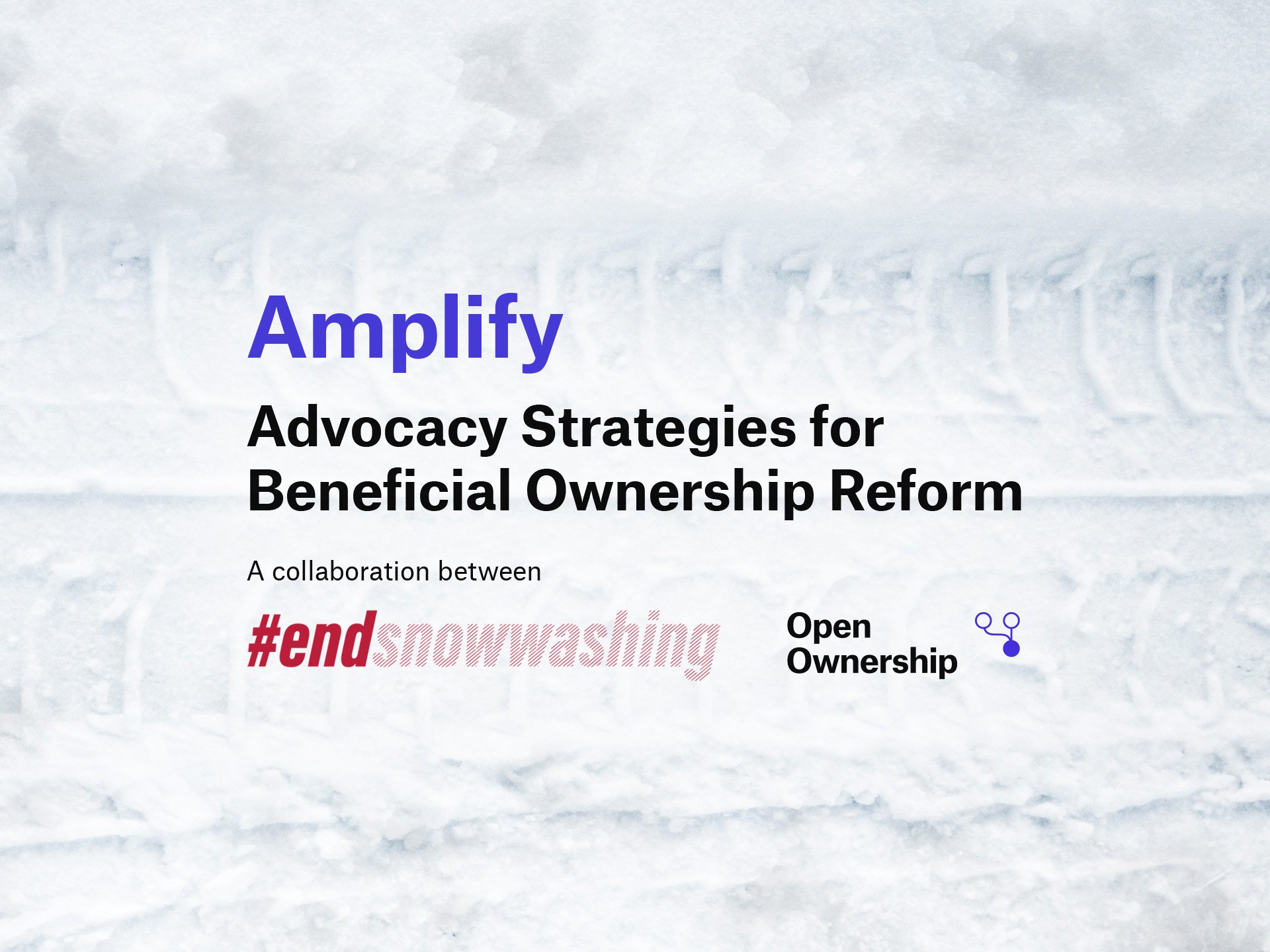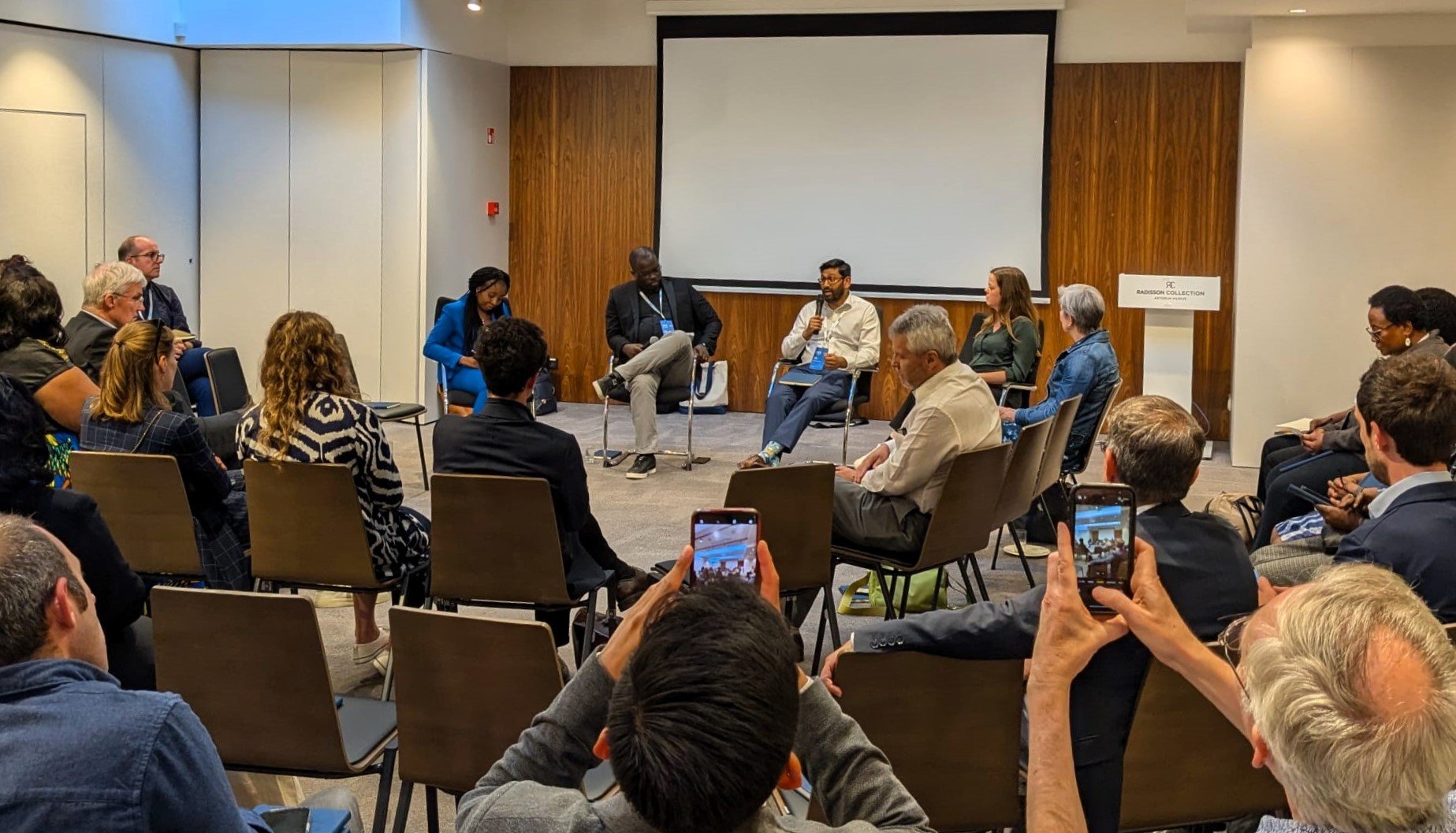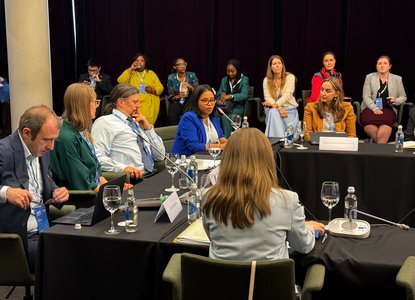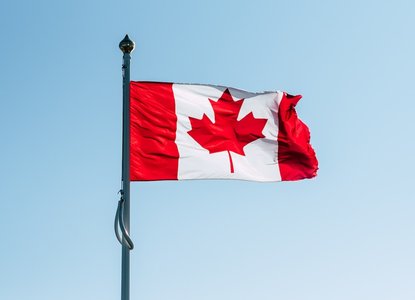Amplify: Tactics for advocating for beneficial ownership reforms

The End Snow-Washing Coalition and Open Ownership launched their new collaborative project Amplify: advocacy strategies for beneficial ownership reform, on the sidelines of the International Anti-Corruption Conference (IACC) in Vilnius, Lithuania. This blog post summarises key outcomes from this first learning event, and our upcoming activities.
It is estimated that between 47 billion to 100 billion dollars CAD is laundered each year in Canada. That’s approximately 2-5% of Canada’s annual GDP. This led experts to coin the term Snow-Washing, linking the process of laundering money with the cold, snowy, Canadian winters. One of the reasons Snow-Washing was possible is because of the environment of secrecy: people were allowed to register companies, residential properties, and trusts without disclosing who the real owners are.
This environment of secrecy compelled a group of three civil society organisations (Publish What You Pay Canada, Transparency International Canada, and Canadians for Tax Fairness) to launch a public campaign to End Snow-Washing. They advocated for a law mandating public disclosure of who owns companies and other corporate vehicles.
After six years of campaigning, in 2023 they achieved their first goal: a central, public, beneficial ownership (BO) register, which requires companies registered at the federal level to disclose their beneficial owners (the people that ultimately control, own or benefit from them). The federal government wants to map its data to the Beneficial Ownership Data Standard and encourages provinces to do the same. This would mean information about all Canadian companies will become interconnected and interoperable with other agencies, both domestically, and internationally.
The End Snow-Washing Coalition has been an inspiration for beneficial ownership transparency (BOT) advocates worldwide, as they managed to build a strong coalition, sustain political momentum, and advocate for a law that was passed unanimously by Canada’s Parliament.
But how did they do it? At the International Anti-Corruption Conference in June 2024, Open Ownership and the End Snow-Washing Coalition organised a side event with the Transparency International chapters from Zambia and the United Kingdom to share lessons of what worked, and how to manage challenges when advocating for BOT reforms.
Lessons to amplify: Collaboration, evidence and adaptability
During the learning event in June, we discussed similarities and differences with the UK and Zambian approaches. They can be summarised into three main areas of work.
Collective action collaboration: Collaboration with the media and other stakeholders have proven to be crucial for sustaining interest and reaching wider audiences in all three countries. The civil society organisations undertook investigations with media outlets and provided them with exclusive coverage. They also identified niche audiences and channels, and tailored their messaging accordingly, to speak to what really mattered to them. For instance, the Canadians regularly collaborated with journalists, international civil society and some private sector associations and labour unions to advance advocacy goals.
Evidence-based advocacy and alignment with national interests: International Exposés such as the Panama Papers (2016) and Paradise Papers (2017) were useful examples showing the extent of abuse of shell companies in these countries. Journalists in Canada were regularly featuring stories about the extent of money laundering and terrorist financing were occurring through secret companies. These investigations provided real-world evidence of a global problem that needed to be addressed, which in turn helped to build the political momentum for BOT reform in all three countries presenting at our event.
Also useful was how civil society developed arguments which demonstrated the economic and social value of BO registers. More specifically, how civil society used arguments to align with national interests of their countries. We learned that the biggest pushback for BOT reform, both from government and some private sector stakeholders, was how privacy could compromised if BO registers became public. Advocates had to to counter these arguments every time. For instance, the End Snow-Washing team created a short briefing note with counter-arguments and suggested data fields that could be published, and those that could be redacted to protect personal data. They also developed an in-depth legal analysis that demonstrated how Canada’s privacy laws and charter rights are upheld with public disclosure of certain information fields.
Adaptability: Whereas the Anti-Corruption Summit in 2016 helped to convince the UK and Zambian governments to push for BOT reforms ( countries which then launched registers in 2016 and 2019 respectively), Canada wasn’t there yet – the End Snow-Washing Coalition accepted that it needed to build on that political momentum.
Despite their tactics, it was not until the Russian invasion of Ukraine in 2022 and the associated sanctions imposed by the international community on Russia and Russian oligarchs, that the Canadian government finally committed to taking BOT reform seriously. This demonstrates that it’s not just about strategies and messaging, but also how unexpected foreign events can affect your goals.

Launch and learning event for Amplify: advocacy strategies for beneficial ownership reform
Key takeaways and next steps
This first learning event helped not only to share experiences and compare approaches from three contexts but also to collect feedback and further ideas from colleagues from other regions and sectors. These ideas can in turn inform what type of resources would be most useful to prepare in order to share lessons with the world.
A survey shared after the launch event showed the desire from stakeholders to learn more about strategies and messages that help achieve quality BOT reforms, but also to network and stay in touch with BOT advocates from around the world, through a forum or community of practice where advocates can exchange materials and progress. Based on the successful advocacy in Canada, Open Ownership and the End Snow-Washing Coalition are now partnering in a new project supported by the BHP Foundation called Amplify: Advocacy Strategies for Beneficial Ownership Reform. This project which we hope will be multiyear, aimed at developing resources to assist BOT advocates worldwide, and supporting the progress of advocacy in Canada.
Potential resources include a toolkit with key strategies and materials, a community of practice, a podcast with insights and interviews by key advocates, and a series of online webinars. These ideas were based on feedback regarding the types of learning products participants wanted to see. Open Ownership and the End Snow-Washing Coalition will be exploring these ideas as we move forward with the Amplify project, and we’ll produce at least one learning product by the end of 2024.
Recognizing there’s no one-size-fits-all solution, we expect this to help inform focused strategies that meet local needs. We want Amplify to support the global ecosystem of BOT advocates – including those we’re working with through the Opening Extractives programme and Open Ownership’s in-country technical assistance.
If you have ideas or suggestions, or just want to stay in touch with us on this project, please reach out to Senior Advocacy Manager Agustina De Luca at [email protected]. We are looking forward to engaging BOT reformers around the world!

